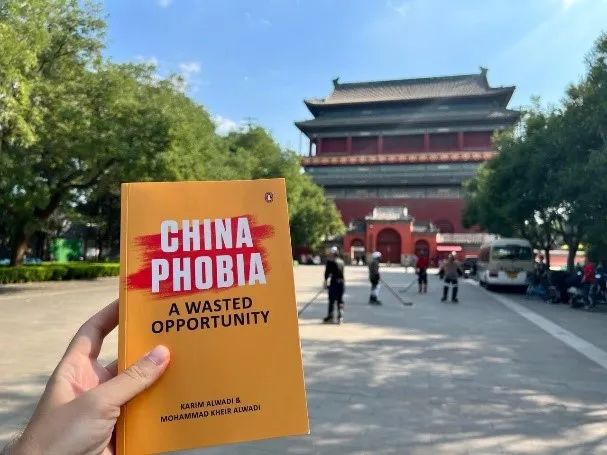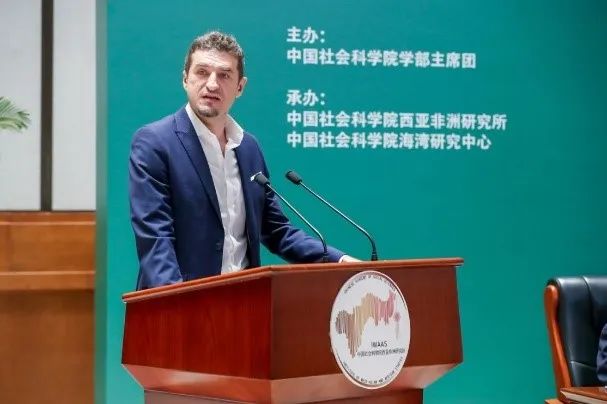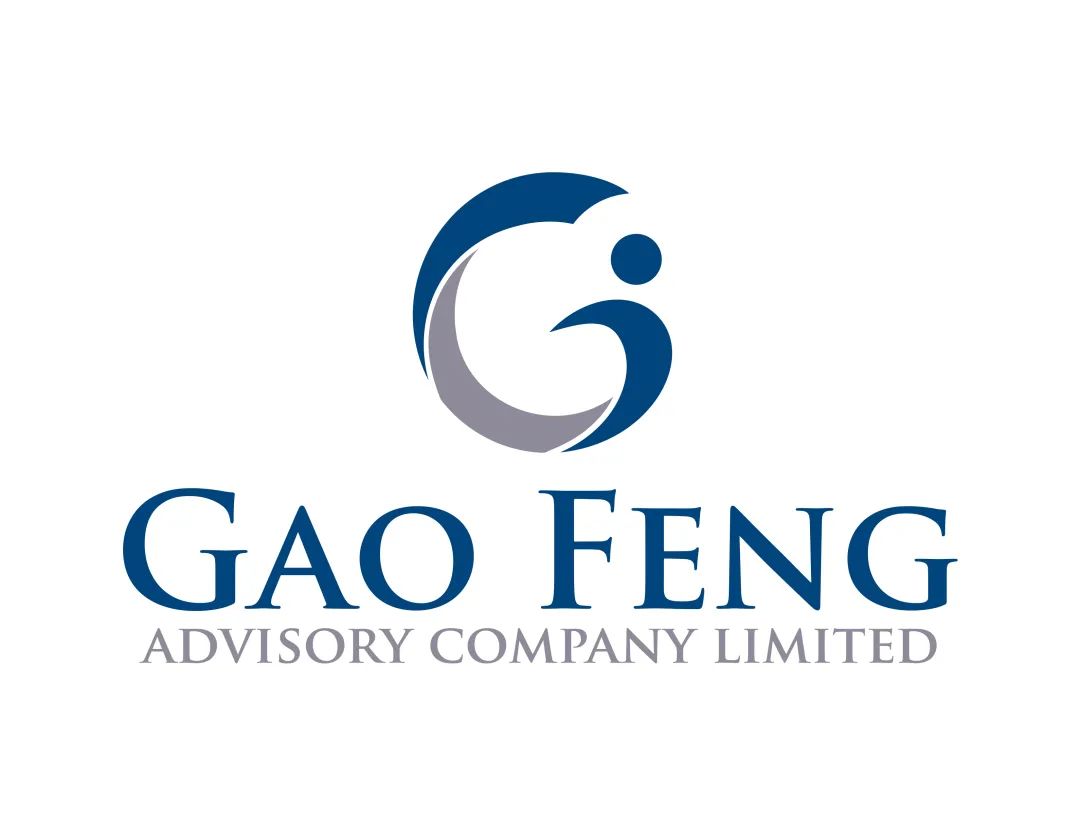Understanding the China Phobia Phenomenon to Prevent Mutual Conflict
Understanding the China Phobia Phenomenon to Prevent Mutual Conflict

An Interview with Karim Alwadi
September 2022
Preface
On September 21, 2022, I had a dialogue with Karim Alwadi, an entrepreneur, political scientist and an author based in Beijing since 2001. We discussed the factors that have led to what he calls “China Phobia” in his recently published book with the same title. Referring to the growing distrust of China among Western governments, Karim sees that Western governments often view China as a threat to global peace, economic growth, and geopolitical stability.
Edward Tse (hereinafter Ed): Hello, everyone. My name is Edward Tse. I am with Gao Feng Advisory Company, a strategy and management consulting firm with roots in China. Today I’m delighted to have Karim Alwadi, a good friend of mine, on our show. Karim has been living in China for over 20 years and has been an entrepreneur and an academic and has done many startups. Last month (August), he and his father published a new book called China Phobia. Mere reading of its introduction on Amazon.com convinced me it is a unique book, as it presents a rather unique point of view on China. In the current geopolitical situation, there are conflicting points of view and therefore, we need more unique and more benign points of view on how the China-US relationship should be managed, going forward. So, Karim, thank you for joining our show. Could you please tell us more about your background?
Karim Alwadi (hereinafter Karim): Sure. I’m a Syrian-Russian entrepreneur who has been living in China for the last 20 years. Given my ethnic background, I’m a product of the Cold War era who grew in the midst of the phobias that existed then. Born in Syria, I have a Syrian father and a Russian mother. Both countries are located in regions that are basically proxy war zones. Also, with a name like Karim, I have always felt Islamophobia first hand. Now, my home is in China. I live here with my Chinese family, I want to avoid a new phobia affecting my life! This is the personal side of my life.

What made me write this book? Personally speaking, I have many friends in the US. In 2014-15, when I talked to some prominent business people in the US, I got the feeling that they were already tired of China and had lost interest in China. I asked them why? They said: “Karim, we have really tried hard and have been to China multiple times. We even sent our kids to China. However, we still don't understand China. We don't understand what it is about. Since life is rather short, we have decided to move on.” That’s one part. The other part is that the U.S. defense establishment has identified China as a top threat. So, I kind of thought that this honeymoon with China was going to end soon.
I do a lot of business focused on financing and infrastructure development in several developing countries. I often go to Central Asia, the Middle East and Africa. I have felt from 2016-17 onwards that an anti-China sentiment had started developing there also, in areas that were supposed to be China-friendly. So, I thought the next phobia would be a China phobia of sorts and that needs to be narrated from an objective perspective.
Ed: Is that the reason why you decided to write this book?
Karim: Indeed, the idea is to say what I have just told you. Now what is a phobia? It’s the fear of the unknown and a lack of understanding. Thus, I thought the best way to talk about it would be to explain what is China from a third party’s point of view.
My father was a journalist and an author. He started visiting China in the 1990s. He was an ambassador to China for almost 10 years. He has met most of the senior Chinese officials. As for myself, I grew up here, and I am an active member of the Business and Social community. So, we have had a non-US, non-Western, non-China-centric approach, and the perspective of a third party, for two generations. My father and I have talked innumerable number of times about what China means, what the world thinks of China, what the Chinese people think of the world, especially the young guys, and what China is about. What are the Chinese people like? And what does it mean to be a citizen of the most misunderstood economy of the world?
We have discussed China in many family conversations. Each of us knows China well, of course, but there is a generation gap and we have had different experiences with China.
Our family comprises of two generations. Me and my father have two rather different backgrounds. Naturally, we often have two different points of view in our discussions. But we try to discuss things objectively, from a neutral perspective of the developing world.
Now someone could ask why should we care? What does it matter? It's just another phobia.
The way we think about it is that the world doesn't have time for another phobia, given the urgent and the real situations that humanity is facing, such as mobility, equality, and global warming. In the book we metaphorically describe these situations to make the narrative more understandable. The situation is akin to two lions fighting in a forest under fire. Instead of cooperating and engaging to save the forest the two lions are still fighting. It might be too late if we don't act now and leverage the available resources efficiently. I'm afraid our future generations and our kids will come to us and say, “What were you guys thinking when you wasted such an opportunity?” And that's why the subtitle of the book is A Wasted Opportunity.

Ed: I see. So, what do you think are the factors driving this China phobia?
Karim: We have identified seven factors. Let me highlight some key points. The first is fast and furious economic growth. China has grown four to five times faster than anyone else in history. Just think of the movie Fast and Furious, which would have been very difficult to understand if there were no subtitles. China jumped from being a nobody to becoming the biggest elephant in the forest. And that change creates anxiety. It is what we call “a crazy nation” that now not only makes its own aircraft carriers, but also airplanes. It sells its airplanes while they are still under design, which no other country has done before.
The second factor we discuss is shifting of the center of gravity, or the center of power, from somewhere between the US and Europe to Asia. The rise of China has triggered this migration but it is not limited to China. We also have India, Indonesia, and other Asian countries. The value system in Asia differs from the one in the Western hemisphere and this leads to heightened sensitivity in general.
The third angle we talk about is the Belt and Road Initiative. Actually, I was surprised when this element entered our list of factors driving the China phobia. The logic behind this is that it is the first initiative in the world to snatch global leadership from the other side, from the West. China is coming up with a proposition that is very difficult for G7 to compete against. They cannot match China's capacity to do what it is doing, especially in the infrastructure part. Combined with mistakes and errors happened as result of lacking experience.
Let me also talk about a factor that we call “China resigns from the world’s factory to become a world market.” The world is used to seeing China as the land of socks, sneakers, and Christmas trees. But now the world is in a state of shock as it is staring at and using not only Chinese broadband, which means 5G and Huawei, but also made-in-China, designed-by-China phones, Chinese apps, and the Chinese operating system (Harmony). China is now clearly challenging not only the western hegemony but also the traditional economy.
We have three other topics, Covid-19, soft power, and others, but we will talk about these later.
Ed: I can see where your perspective is coming from. My standpoint is that it looks like you are talking about a series of accomplishments by China in the last several decades, especially in the last decade. And the Chinese would insist that “This is our achievement. We have worked hard on this. Why should the West be concerned about that? ” On China going for soft power, you have made a big remark that China has shortcomings or has sort of faltered on soft power. Could you elaborate on that point?
Karim: The Chinese are still talking about how to tell the China story! This reflects the difficulties that China is facing in projecting its soft power. We began explaining this carefully because I thought this is an important part. We tried to figure why China has suffered on the soft power front. We started with China's inherited problems, such as Confucius’ inward looking attitude and inclination of the Chinese to prioritize the nation and the country, which may in fact be the only focus. Hence, if you see everything in China in terms of colors and characteristics of the Chinese, this is what prevents them from building a global values system and a comprehensible narrative of what China represents today.
Now, let us shift the focus to the second part, to the systematic approach to building of soft power and its outcome. There is nothing compared to a spontaneous smile, or even displaying vulnerability of sorts. That kind of approach prevents transference of the energy that you have. That is the energy I see and feel when walking on streets in Beijing, Shanghai, or Hong Kong.
We also discuss the Chinese language and its role in limiting China’s soft power. The language is difficult to learn, at least as I know it. Thank God, that I have been able to somehow perfect it in the last 20 years.
Ed: You have no problem with the Chinese language now.
Karim: But the fact is that English is becoming a global language. Indians are speaking to each other in English. I'm Arab, and I speak to my Arab friends most of the time in English, not in Arabic languages.
Actually, my last visit to Africa was in 2018. After coming back, I wrote that there are two things that unite Africa. One is color, and the second is the English language. It is incredible that many people in many countries are flipping from French to English. In North Africa, Morocco, and Algeria, parents are demonstrating and demanding a change of the official language from French to English, because it will equip their children to have a better future.
Now, why do we say language is important? Because it’s the “special purpose vehicle,” it's the vehicle that transforms your
energy into soft power. Currently, China doesn't have that. Last year's numbers from Germany show that interest in studying Chinese is decreasing. Most people worldwide fail to pronounce names of Chinese leaders or the most important Chinese universities. That is an issue, and we are not sure what the solution is.
Ed: As you said in your book, China will not replace the US as the premium superpower. Do you seriously believe that?
Currently the projection that China can overtake the US as a superpower is a rather common narrative. So why do you say that China will not replace the US as the leader in the world?

Karim: A lot of people might not like my answer. I mean neither US nor China. But anyway, the whole idea started with a conversation with Madeleine Albright in the US at Aspen in 2019. She asked me what the Chinese wanted. I knew what she was aiming at, so I answered that they didn't want to replace the US and take the throne. And she said, why? I told her the Chinese were too smart to do that. I think my answer was insufficient, and didn't convince her. That’s why I decided to undertake what we call “the mission” to fully articulate the situation through this book and attempt to explain why China will not be able to replace the US and become the new fulcrum of global hegemony.
We thought it was not enough to say and reiterate that China wants a peaceful rise. That its rejuvenations only aim to enable its people enjoy a good life. Chinese people, including my family and myself, believe that. I mean growing peacefully to enjoy a good life. But most of the world cannot understand this kind of simplicity. So, if you want to convince other people, especially your competitors, we need to talk about the hard factors preventing China from doing so.
China needs to try to communicate better with the Americans and make efforts to make their approach towards China more rational than it is. If we understand each possibility and we know the other party's capacities and capabilities, it can take us away from wrong, and possibly very catastrophic assumptions.
We think that any global power have to be regional hegemony before it reaches a global hegemony. What does regional domination mean? That’s basically a question in the realm of international relations. Comparing China’s regional hegemony with the US isn’t appropriate because the US has nice Canadians and Mexicans neighbors. China on the other hand has one of the most complicated neighborhoods in the world, comprising of all colors, many religions, several ethnicities, and very ambitious people. It has what I call four and a half (theoretical) nuclear powers: Russia, Pakistan, India, North Korea, and potentially Japan or even South Korea making up for the remaining half. So, it won't achieve that regional hegemony.
We also talk about how financial capacities prevent China from cultivating hegemony. Previously hegemony, especially in the European context, was dependent on colonizing other nations. Look at the British crown, you will see what I mean. For the US, the dollar is basically the main engine. I always tell my Chinese friends that there is no business more profitable than printing US dollars. The same paper that costs two cents in the morning is $10 in the afternoon, and if they decide to add one zero, then it becomes $100. No other business can compete with that.
Now, China's money is thought of as hard-earned money, otherwise known as “Xinkuqian” (辛苦钱). What will it take to be a hegemony like the US? That’s over 300 billion US dollars just to protect its allies globally. China doesn't have that kind of money. So that's one part of the story.
Then we talk about the local social contract in China between the Communist Party and its people. The social contract does not includes sending China's kids and younger generations to Africa and the Arab deserts to support and propagate Chinese value system and its interests. If you don't have this kind of global values driven citizens that support this thinking, it prevents you from acquiring global hegemony.
We also write about this declining demography and why everyone is talking about it now. But why was China unable to cover the obvious trajectory? It’s news now, but we knew about it in 2018, which means the phenomenon was obvious to everyone for many years. Let us look at Japan as an example China’s aircraft carriers created an alarming feeling there, when Japan’s military and navy officials were asked why the country is not doing what China is trying to do. The simple answer is that Japan doesn't have enough people. Building aircraft carriers requires a lot of people, and Japan already faces a very, very difficult time recruiting young guys in the current setup. This simply doesn't work for it.
Ed: That's a very detailed elaboration of your thoughts. When you were talking, I was thinking whether this phobia can be managed by the two sides, China and the West?
Karim: Well, will this change? Honestly, we have come up with the conclusion that we don't think that the US and its allies will change. So, I think we have to focus on China. The most important elements will be China's behavior and attitude, which are the final, vital, and determining elements. However, many countries, especially those with strong economic ties with Beijing will find it difficult to follow the U.S. and have same sentiment towards Beijing. However, any attempt at leveraging the economic weight to prevent this anti-China sentiment will be very costly to Beijing.
Ed: How so?
Karim: When I came to China, as a diplomat's son, I heard some Chinese officials saying the relationship between China and an Arab country, let's say Syria, will result in a “thank you for your support” on the Golan Heights issue. And then in the early 2000s it was “thank you for support on Tibet and Taiwan.” Today, China says “thank you for support” on Tibet, Taiwan, Xinjiang, South China, and Hong Kong. And then the other parties will require more since you are the big brother in this formula.

Ed: So, how should China manage to diffuse this anti-China sentiment from your standpoint?
Karim: Let me end with some positive notes. Is this China phobia manageable? The short answer is yes. Ideological differences are what basically differentiates countries. We don't believe that China would export its own ideology. So, there is no global confrontation or existential threat. No one is thinking of dissolving China like what happened with the Soviet Union. The fact that this doesn't exist means that there is a chance. I think we need creative thinking, imagination and political wisdom for coexistence. Because as some American diplomats have told me, there is no room for failure here.
Ed: Thank you, Karim, for your very insightful views. I would certainly recommend everyone to buy a copy of your book and take a more detailed look at your point of view. And I would also like to ask you about your experience of writing a book through a father-son dialogue. This book was obviously written in a unique manner. How did you get the book out of this from an individual standpoint?
Karim: I think this is the best thing I have done in my life until now. That’s the biggest achievement. I think myself and my father know each other better now. It was a great opportunity for me to know my father better. I also think from his side, he's very happy. He spoke to his friends and said that it's the best thing he's done. He is 74 this year.
Also, I see differences attributable to a generational gap between himself and me. We don't disagree on many things, but the ways we think about issues are different. Our audience is basically this new generation. I disagree with him and don’t want to inherit his religious or political thinking.
I also see some disagreements with my kids now. So that's what the book is basically for. Hopefully, the young generation will look at it and have their own thinking on the matter, because they will pay the price if this is not managed well.
The idea here is that China wants to enter the club. The existing members are trying to prevent this. They are fearful about it. China’s entry is out of their comfort zone.
The way we go about it is that China should learn from its own experience of putting the chicken before the egg. So basically, it needs to pull and pay the membership fees and be representative of not only its own 1.4 billion people but also Convince other developing countries that it will be a benevolent Super Power. And then it will be the same scenario as in the 70s when China regained its position at the UN.
Today, the narrative here in Beijing is why should I pay the club fees. The guys don't want me to join it. We’re saying that we need to find a way out of this dilemma and China should start taking the first step. And hopefully, they will have China as a new member of that board, because we believe that China doesn't want to be a highly-paid CEO anymore - it wants to be a co-founder and a shareholder. So, it can enjoy all the privileges, the multiples, and the yearly dividends, and of course, that also comes with responsibilities and obligations.
The whole book is about how to manage both parties and their respective expectations. We hope this will be informative for the younger generations. I also see myself as still a part of the younger generation, and I hope it will be informative and catalyze a new thinking about this issue.
Ed: I understand that even though this book just came out in August, which was last month, it has already attracted quite a bit of attention in the West. I also understand that a Chinese version of your book is in the works. Is that right? Can you tell us more about that?
Karim: Yes. Honestly, the book is doing much better than I expected. We are selling in 24 countries already. We are doing very well on Amazon. And the Arabic language version is coming out soon because we also believe that the Middle East is also an important front facing a confrontation similar to what China is going through. We’re working on the Chinese version, which will hopefully be out by next year.
Ed: That's wonderful. My final question to you, Karim, is that if any of my clients or my audiences would like to get hold of you, how could they reach out to you?
Karim: The best way is LinkedIn. They could search my name and see all my information there. They can also reach me through my email: krkrov@163.com.
Ed: Fantastic. It's been a great conversation with you, Karim.
Very insightful and thought-provoking. About your new book, I wish you the very best and great success not only in this book but also in any other ventures that you're working on. You are very versatile and talented. You sit right in the middle of China and the rest of the world, so you are in a very good position to observe and interpret things on behalf of China and other parts of the world. Thank you for your time!
Karim: Thank you. And it's an honor to be with you.
Ed: Thank you.
About the Interviewee
Dr. Karim Alwadi is an entrepreneur / political scientist based in Beijing since 2001. He started and founded several companies in China spanning sectors from machinery manufacturing, infrastructure investment and development, to merchant banking. He received his Bachelor’s and Master’s degrees in International Relations, focusing on Sino - Arab Relations, from China Renmin University and obtained his PhD degree in International Politics from China Foreign Affairs University. He is an active member in the Chinese business and academic society.
About the Interviewer
Dr. Edward Tse is founder and CEO, Gao Feng Advisory Company, Adjunct Professor of School of Business Administration at Chinese University of Hong Kong, Professor of Managerial Practice at Cheung Kong Graduate School of Business, and Adjunct Professor at the SPACE program of University of Hong Kong. He is a member of Global Future Council on China at the World Economic Forum, as well as a member of advisory boards for private equity and venture capital companies. He started his strategy consulting career at McKinsey’s San Francisco office in 1988 before returning to Greater China in the early 1990’s. He became one of the pioneers in China’s management consulting industry, by building and running the Greater China operations of two leading international management consulting firms (BCG and Booz) for a period of 20 years. He has consulted to hundreds of companies, investors, start-ups, and public-sector organizations (both headquartered in and outside of China) on all critical aspects of business in China and China for the world. He has also advised the Chinese government organizations at different levels on strategies, state-owned enterprise reform and Chinese companies going overseas, as well as to the World Bank and the Asian Development Bank. He is the author of several hundred articles and six books including both award-winning The China Strategy (2010) and China’s Disruptors (2015), as well as the newly published 《变局思维》 (Strategic Thinking in the Era of Mega Changes) (2022). He holds a SM and a SB in Civil Engineering from the Massachusetts Institute of Technology, as well as a PhD and an MBA from University of California, Berkeley.


Gao Feng Advisory
Gao Feng Advisory Company is a professional strategy and management consulting as well as investment advisory firm with roots in China coupled with global vision, capabilities, and a broad resources network
Wechat Official Account:Gaofengadv
Shanghai Office
Tel: +86 021-63339611
Fax: +86 021-63267808
Hong Kong Office
Tel: +852 39598856
Fax: +852 25883499
Beijing Office
Tel: +86 010-84418422
Fax: +86 010-84418423
E-Mail: info@gaofengadv.com
Website: www.gaofengadv.com
Weibo: 高风咨询公司
